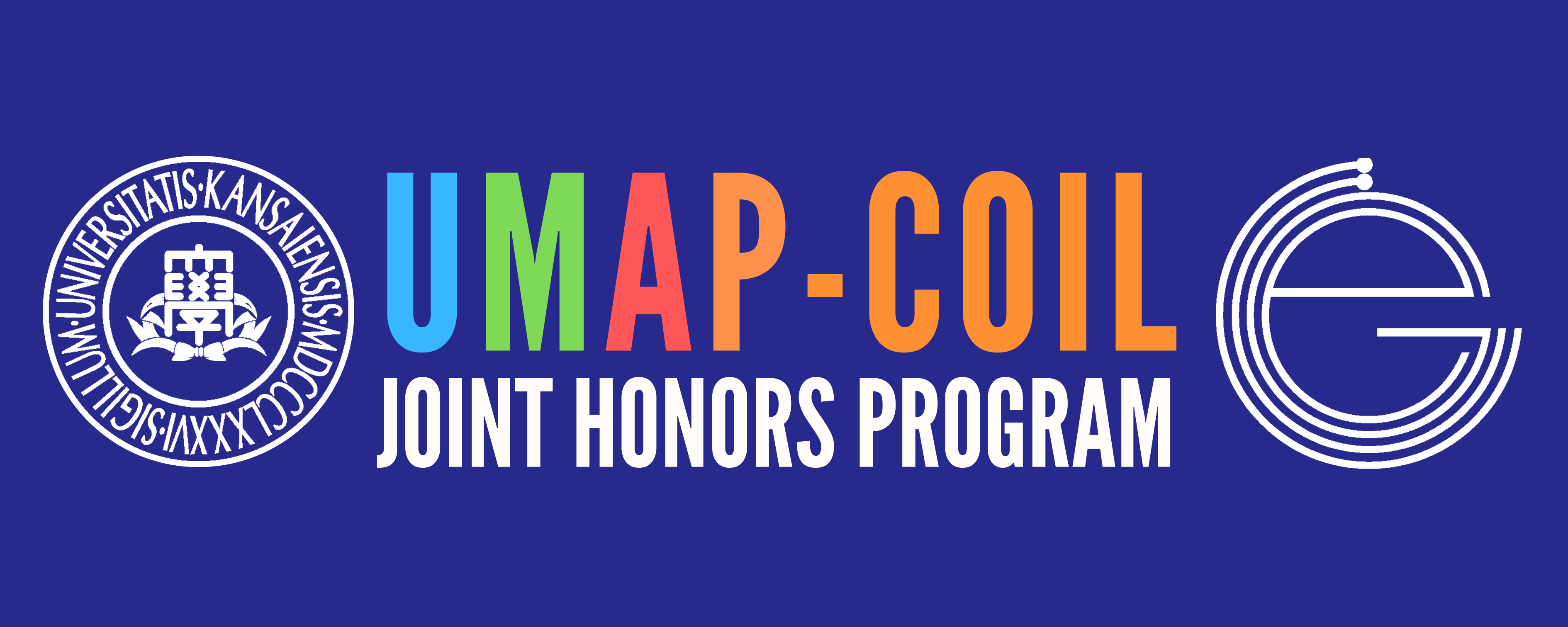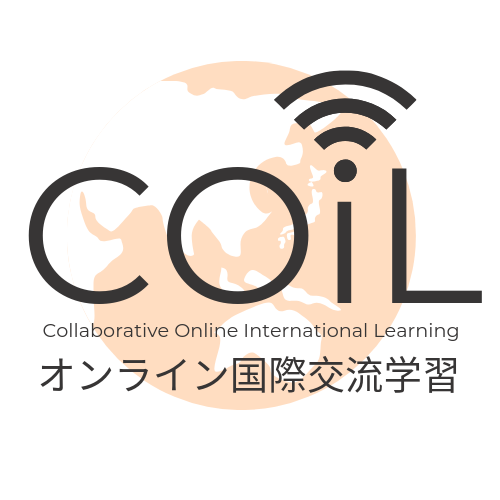2019.07.21Advanced Programs
UMAP-COIL Joint Honors Program: Online Session Report
Please join Kansai University IIGE in celebrating the start of the UMAP-COIL Joint Honors Program, in conjunction with UMAP and the Peace Boat East Asian Voyage! Read all about the first month's COIL activities below in the first official program report.

BACKGROUND
In 2018, the Kansai University COIL initiative (also known as KU-COIL) transformed into a new institution: the Institute for Innovative Global Education (IIGE), with a mission to build new ties and strengthen those existing between Japanese and higher-education institutions all over the world. Using widely-available technology, students and faculty will work together across borders by applying the Collaborative Online International Learning (COIL) method.

COIL stands for "Collaborative Online International Learning," a form of teaching which uses Information and Communication Technology (ICT) to connect students in different countries so that they can participate together in projects designed to boost their understanding of various fields or to help them acquire specific skills. Focus is placed upon the students and their collaboration with one another, i.e. encouragining them to take a proactive and participatory role in their education.
A growing number of institutions are utilizing the COIL method of education both within Japan and the United States to build and foster inter-university relationships. As part of the 2018-2022 Inter-University Exchange Project promoted by MEXT (Ministry of Education, Culture, Sports Science and Technology), the COIL Plus Mobility Program aims to foster competency in practical foreign language skills, problem solving and critical thinking, international adaptability, and cross-cultural understanding through expertise gained in COIL courses while improving students’ mobility through COIL with the goal of developing the next generation of international education.
OBJECTIVE
With this UMAP-COIL Joint Honors Program, IIGE and UMAP (University Mobility in Asia and the Pacific) have joined forces in an effort to further facilitate student mobility through COIL practice. Sixteen students from Japan, the U.S., Philippines, Malaysia, Thailand, and Taiwan have been invited to participate in a Peace Boat cruise in the Asia-Pacific region enhanced utilizing the COIL-style educational method. The ship will dock at various ports in Japan, South Korea, and Russia, where students will have the opportunity to take part in Sustainable Development Goals and peace-themed fieldwork, cultural activities and events.
Students will also take part in a series of virtual lectures by navigators from around the world who will share their expertise on social business entrepreneurship with various Sustainable Development Goals in mind. Lectures and discussions will address a range of global issues, including but not limited to, peace, human rights, and the environment. Students will work together in teams throughout the program to generate a presentation promoting the local areas they have visited for tourists from overseas to be broadcast virtually in the final week.
![]()
The Sustainable Development Goals are a collection of 17 global goals set by the United Nations General Assembly in 2015 for the year 2030, and are part of Resolution 70/1: “Transforming our World: the 2030 Agenda for Sustainable Development.” Participants of this program will consider this universal call to action to end poverty, protect the planet and ensure that all people enjoy peace and prosperity. While visiting various ports during the cruise, they will generate a glocal (global and local) solution to contribute to the 17 goals as their small group research project.
ONLINE INTERACTIVE SESSIONS
As a prerequisite to the program, all sixteen students were asked to join in a month-long COIL collaboration prior to departure. Students met with program navigators, IIGE faculty and staff members, as well as UMAP and Peace Boat representatives via ZOOM (an online conferencing tool often utilized for COIL communication) in three consecutive online sessions on July 2nd, 9th, and 16th.

Students and faculty come together in a live online session on July 9, 2019 to share their initial thoughts on SDGs.
During these sessions they were given the opportunity to get to know one another, and begin their interactive learning experience with an introduction to the themes to be discussed in further depth during the cruise program by program navigators Dr. Craig N. Shealy (Executive Director, i-BAVI; Professor, James Madison University) and Dr. Alexis Dudden (Historian, Professor, University of Connecticut). Students were assigned readings in preparation for each session to build a foundation of knowledge on SDGs and kickstart their collaborative research.

Dr. Craig N. Shealy (left) and Dr. Alexis Dudden (right) present their first guest lectures to the UMAP-COIL Joint Honors Program participants via ZOOM.
In the first session, students were tasked with researching the 17 SDGs and asked to consider critical issues of their own countries and communities which must be addressed in terms of SDGs by the government, private sectors, and citizens. Taking the assignment one step further, they were also asked to choose one particular goal with which they felt a personal connection to focus on and explain its importance to the group.
“The SDG I resonate the most with is gender equality. Wage gaps, the inferiority of women, and discrimination should be a thing of the past. Everyone, regardless of gender, should be given the same opportunities, responsibilities, and resources. Working towards this would also see the decrease, and hopefully the end of, girls being deprived of education, child marriages, female mutilation, human trafficking, sexual violence, and more.” Andrea Tang
In the second session, Professor Alexis Dudden from University of Connecticut gave a short lecture on “Sustainability and the Sea: Place for History and Memory?” Then, students broke into teams to discuss the prompt question: “When we raise the issue of SDGs - which we all agree are beneficial - how best can we incorporate the history and memory of societies of people who surround particular bodies of water?”
In the third and final session, Professor Craig Shealy from James Madison University gave a short lecture on “Intercultural Competence and the Global Sustainable Self: Why We Won’t Have One Without the Other.” In his lecture, Professor Shealy explained the higher someone’s intercultural competence, the higher their awareness towards their surroundings, which is crucial in understanding SDGs. At the end of his lecture, Professor Shealy briefly explained about the BEVI survey that the students had to take prior to this program.
TO LEARN MORE ABOUT THE PROGRAM, CLICK HERE.
